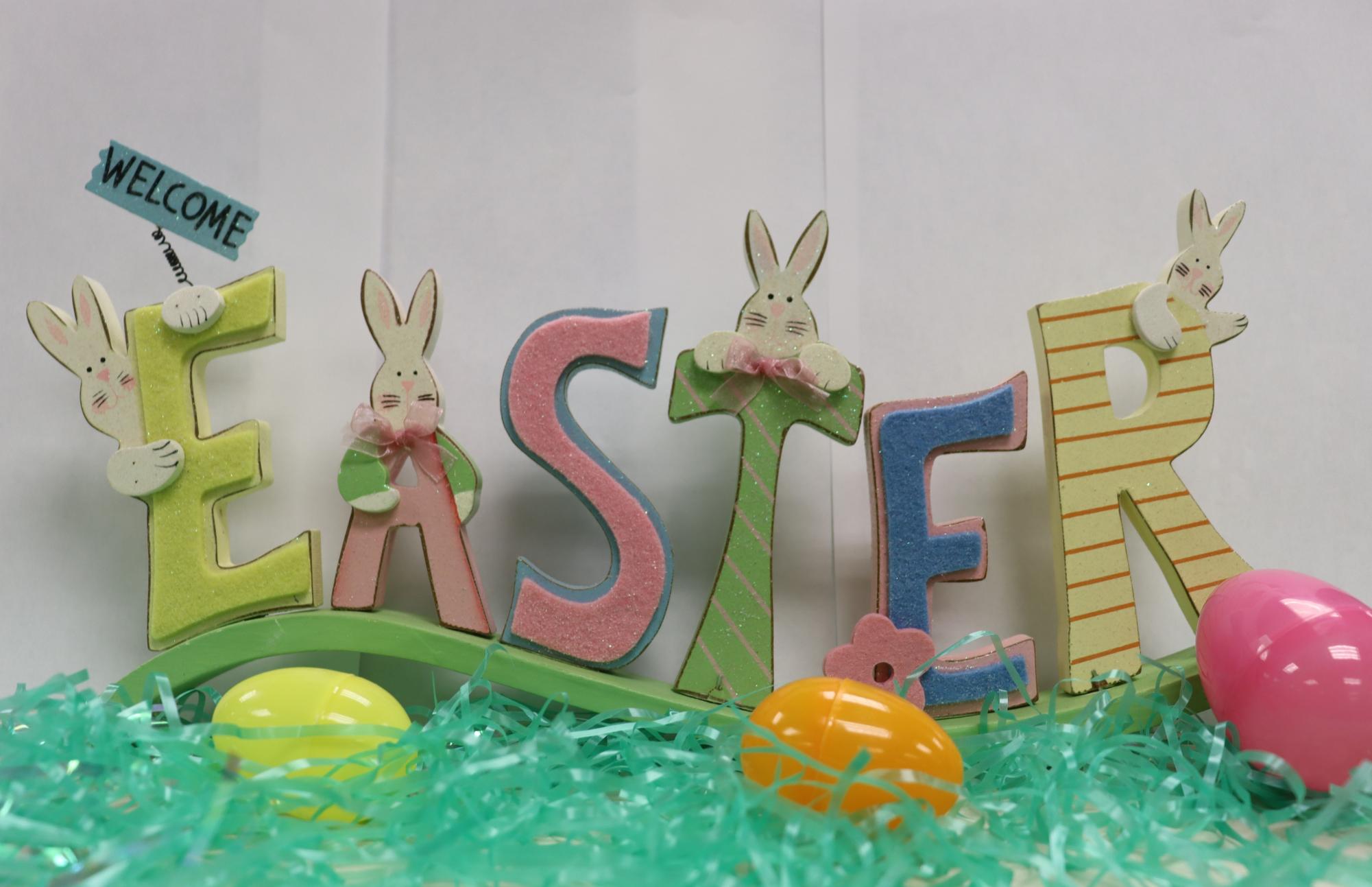Did you know that the largest Easter egg weighs 5000 lbs? It’s a giant sculpture of a pysanka, a Ukrainian-style Easter egg in Canada. The origin and overall HHS view of Easter is just as interesting.
The origin of Easter lies mostly in Christianity. Easter Sunday ends Holy Week, a sacred week in the Christian calendar that begins with Palm Sunday and goes through until Easter the next Sunday. It represents the resurrection of Jesus Christ and is considered the foundation of Christianity, therefore a very important holiday.
However, not all Easter traditions relate back to Christianity. For instance, you might think that Easter eggs are a nod to the resurrection, but originally the egg coloring was a Pagan tradition. Pagans also take credit for the name of Easter, as the name Easter is said to come from the name of the Pagan goddess of springtime, Eostre. Aside from Pagans, it turns out that German immigrants are likely the ones who brought the Easter bunny tradition to America with their celebration of Osterhase. Despite this, there are a few typically universal Easter traditions like getting together with relatives, having dinner and celebrating with easter related activities (whichever they may be.)
Most students at HHS in fact, enjoy the Easter season, according to a recent survey. Over 90% answered that they intend to celebrate, as well as around 88% said they enjoy the Easter season and all that it brings. According to their responses, the top thing most students enjoy about Easter is getting to see their family and eating all together; a lot of students especially like ham and deviled eggs at the table.
As for those that don’t, they seem to enjoy the sweeter side of the table with desserts and sweets like chocolate and pies. Although not all families celebrate Easter as a religious holiday, many HHS students enjoy the religious aspect of the celebration and look forward to the special church services that occur on that Sunday. Those families that celebrate the holiday less religiously find a lot of joy in the egg hunts and quality family time.
Overall, Easter is a pretty diverse holiday, most everyone can celebrate in one way or another and enjoy taking the opportunity to spend time with their families and celebrate for celebration’s sake.









